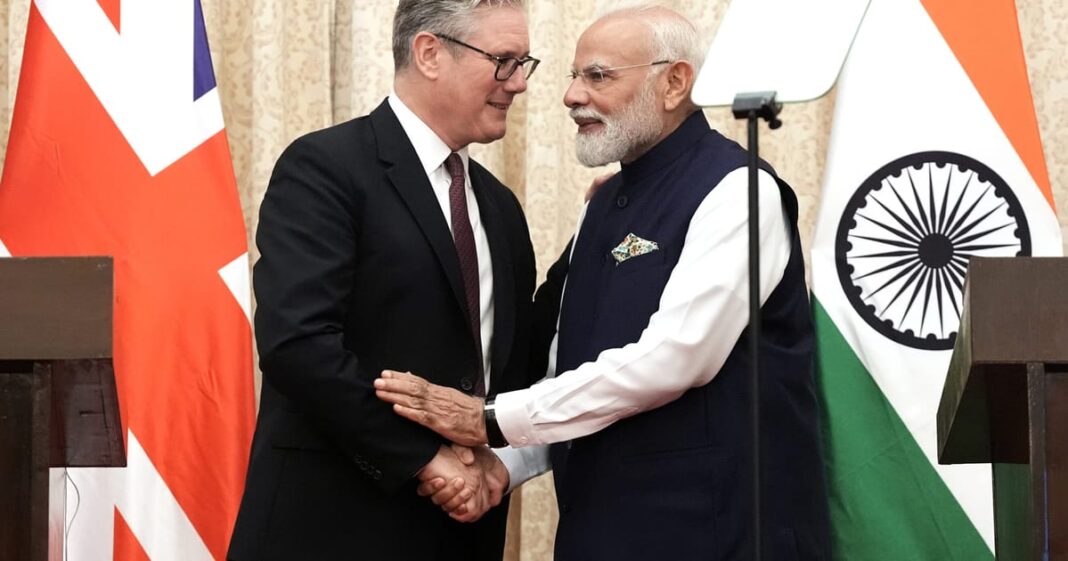Later came Rishi Sunak, particularly revered in India for becoming the first prime minister of Indian descent to lead the former colonial power. Despite that, he never held much hope for striking a deal with the notoriously-difficult negotiators, and was booted out of office without clinching an agreement.
Then came Trump’s return. When the U.S. president swiftly made good on his threats to hit nations, both friend and foe, with tariffs, it sent world powers scrambling for alternative markets. Just five months after Trump’s second inauguration, Modi dashed to Britain to ink a free trade agreement that the British government argued would mark a multi-billion pound export boost for the U.K.
Trump has only highlighted India’s need for new trading partners with his imposition of steep tariffs on New Delhi over Modi’s refusal to stop buying oil from Moscow. Journalists traveling with Starmer to India pressed the British PM on whether he’d tell Modi to divest. He dodged the question.
At a press conference after spending the day with his Indian counterpart, Starmer answered two questions on the subject in only the most opaque terms. When the cameras stopped rolling, aides clarified that the pair had indeed discussed Russian oil.
It’s not the first time Starmer has played the global pragmatist, regardless of the moral matters at stake.
Starmer held a landmark meeting with Chinese President Xi Jinping last year, and twice declined to condemn the jailing of dozens of pro-democracy figures in another former British colony, Hong Kong, under authoritarian laws imposed by Beijing. The U.K. “mustn’t lose … the opportunity for our economy,” Starmer said, opting not to publicly rebuke Beijing over what is an affront to many in Britain.
First Appeared on
Source link




